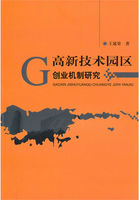The life and work of Tennyson present something like the normal type of what, in circumstances as fortunate as mortals may expect, the life and work of a modern poet ought to be. A modern poet, one says, because even poetry is now affected by the division of labour. We do not look to the poet for a large share in the practical activities of existence: we do not expect him, like AEschylus and Sophocles, Theognis and Alcaeus, to take a conspicuous part in politics and war;or even, as in the Age of Anne, to shine among wits and in society.
Life has become, perhaps, too specialised for such multifarious activities. Indeed, even in ancient days, as a Celtic proverb and as the picture of life in the Homeric epics prove, the poet was already a man apart--not foremost among statesmen and rather backward among warriors. If we agree with a not unpopular opinion, the poet ought to be a kind of "Titanic" force, wrecking himself on his own passions and on the nature of things, as did Byron, Burns, Marlowe, and Musset. But Tennyson's career followed lines really more normal, the lines of the life of Wordsworth, wisdom and self-control directing the course of a long, sane, sound, and fortunate existence. The great physical strength which is commonly the basis of great mental vigour was not ruined in Tennyson by poverty and passion, as in the case of Burns, nor in forced literary labour, as in those of Scott and Dickens. For long he was poor, like Wordsworth and Southey, but never destitute. He made his early effort: he had his time of great sorrow, and trial, and apparent failure. With practical wisdom he conquered circumstances; he became eminent; he outlived reaction against his genius; he died in the fulness of a happy age and of renown. This full-orbed life, with not a few years of sorrow and stress, is what Nature seems to intend for the career of a divine minstrel. If Tennyson missed the "one crowded hour of glorious life," he had not to be content in "an age without a name."It was not Tennyson's lot to illustrate any modern theory of the origin of genius. Born in 1809 of a Lincolnshire family, long connected with the soil but inconspicuous in history, Tennyson had nothing Celtic in his blood, as far as pedigrees prove. This is unfortunate for one school of theorists. His mother (genius is presumed to be derived from mothers) had a genius merely for moral excellence and for religion. She is described in the poem of Isabel, and was "a remarkable and saintly woman." In the male line, the family was not (as the families of genius ought to be) brief of life and unhealthy. "The Tennysons never die," said the sister who was betrothed to Arthur Hallam. The father, a clergyman, was, says his grandson, "a man of great ability," and his "excellent library" was an element in the education of his family. "My father was a poet,"Tennyson said, "and could write regular verse very skilfully." In physical type the sons were tall, strong, and unusually dark:
Tennyson, when abroad, was not taken for an Englishman; at home, strangers thought him "foreign." Most of the children had the temperament, and several of the sons had some of the accomplishments, of genius: whence derived by way of heredity is a question beyond conjecture, for the father's accomplishment was not unusual. As Walton says of the poet and the angler, they "were born to be so":
we know no more.
The region in which the paternal hamlet of Somersby lies, "a land of quiet villages, large fields, grey hillsides, and noble tall-towered churches, on the lower slope of a Lincolnshire wold," does not appear to have been rich in romantic legend and tradition. The folk-lore of Lincolnshire, of which examples have been published, does seem to have a peculiar poetry of its own, but it was rather the humorous than the poetical aspect of the country-people that Tennyson appears to have known. In brief, we have nothing to inform us as to how genius came into that generation of Tennysons which was born between 1807 and 1819. A source and a cause there must have been, but these things are hidden, except from popular science.
Precocity is not a sign of genius, but genius is perhaps always accompanied by precocity. This is especially notable in the cases of painting, music, and mathematics; but in the matter of literature genius may chiefly show itself in acquisition, as in Sir Walter Scott, who when a boy knew much, but did little that would attract notice. As a child and a boy young Tennyson was remarked both for acquisition and performance. His own reminiscences of his childhood varied somewhat in detail. In one place we learn that at the age of eight he covered a slate with blank verse in the manner of Jamie Thomson, the only poet with whom he was then acquainted. In another passage he says, "The first poetry that moved me was my own at five years old. When I was eight I remember making a line I thought grander than Campbell, or Byron, or Scott. I rolled it out, it was this -'With slaughterous sons of thunder rolled the flood' -great nonsense, of course, but I thought it fine!"It WAS fine, and was thoroughly Tennysonian. Scott, Campbell, and Byron probably never produced a line with the qualities of this nonsense verse. "Before I could read I was in the habit on a stormy day of spreading my arms to the wind and crying out, 'I hear a voice that's speaking in the wind,' and the words 'far, far away' had always a strange charm for me." A late lyric has this overword, FAR, FAR AWAY!















